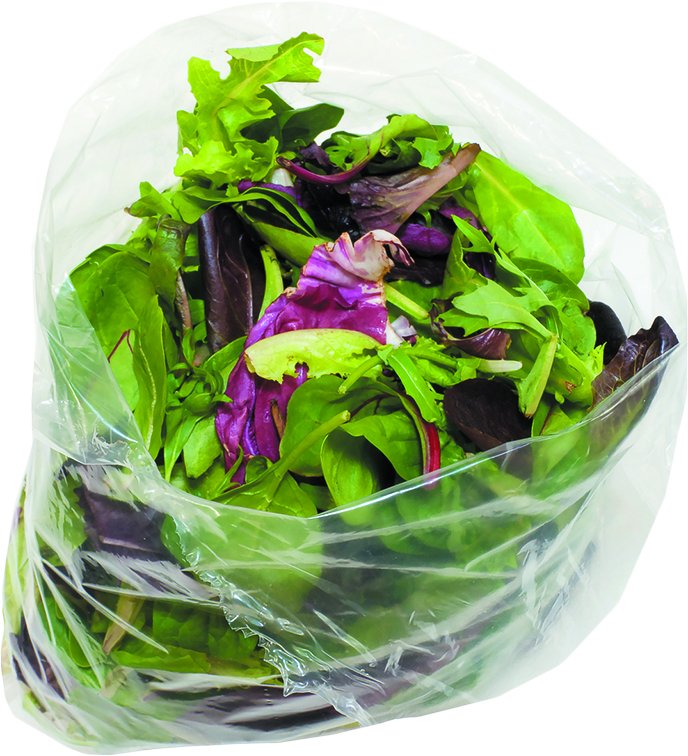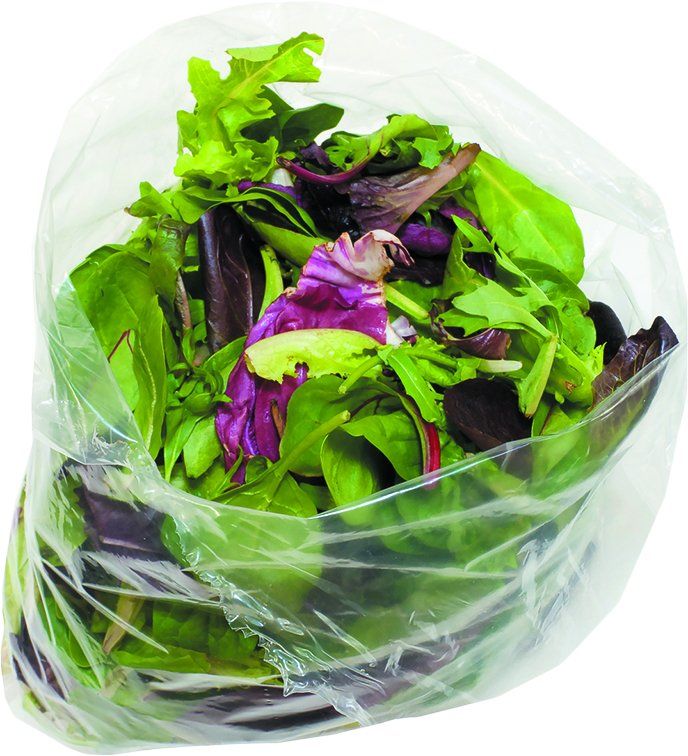[Updated May 10, 2018]
Dreamstime.com

Does bagged lettuce contain the risk of harmful bacteria?
Bags of lettuce and spinach may not be as pristine as they seem. British scientists found that during 5 days of refrigeration, traces of nutrient-rich juice released from crushed leaves in bags of salad greens nourished Salmonella bacteria and increased its growth by up to 280-fold compared to sterile water. The juices also enhanced the bacteria’s ability to attach to the sides of the plastic bags, as well as to the leaves, as reported in Applied and Environmental Microbiology.
Since greens are grown close to the ground, bacterial contamination is possible, although producers take precautions to minimize this risk. “Our research does not indicate any increased risk to eating leafy salads, but it does provide a better understanding of the factors contributing to food poisoning risks and highlights the need for continued good practices in preparation,” says Primrose Freestone, PhD, co-author of the study. She offers this practical advice:
– Buy bags of salad with most distant use-by date.
– Avoid bags with mushy or slimy leaves.
– Pass up bags that look swollen.
– Promptly refrigerate salad greens.
– Before eating, rinse the lettuce leaves well.
To Learn More:
Applied and Environmental Microbiology, January 2017
Q&A for the General Public on Salad Leaves and Salmonella Study, November 2016
Bagged Salads and Salmonella, University of Leicester, November 2016





















